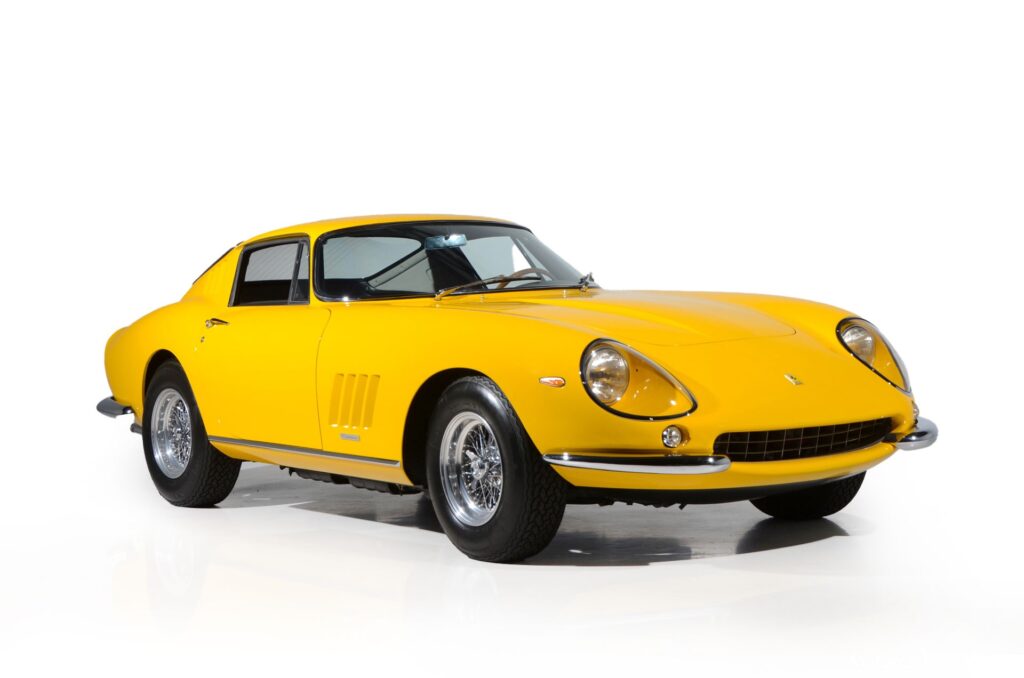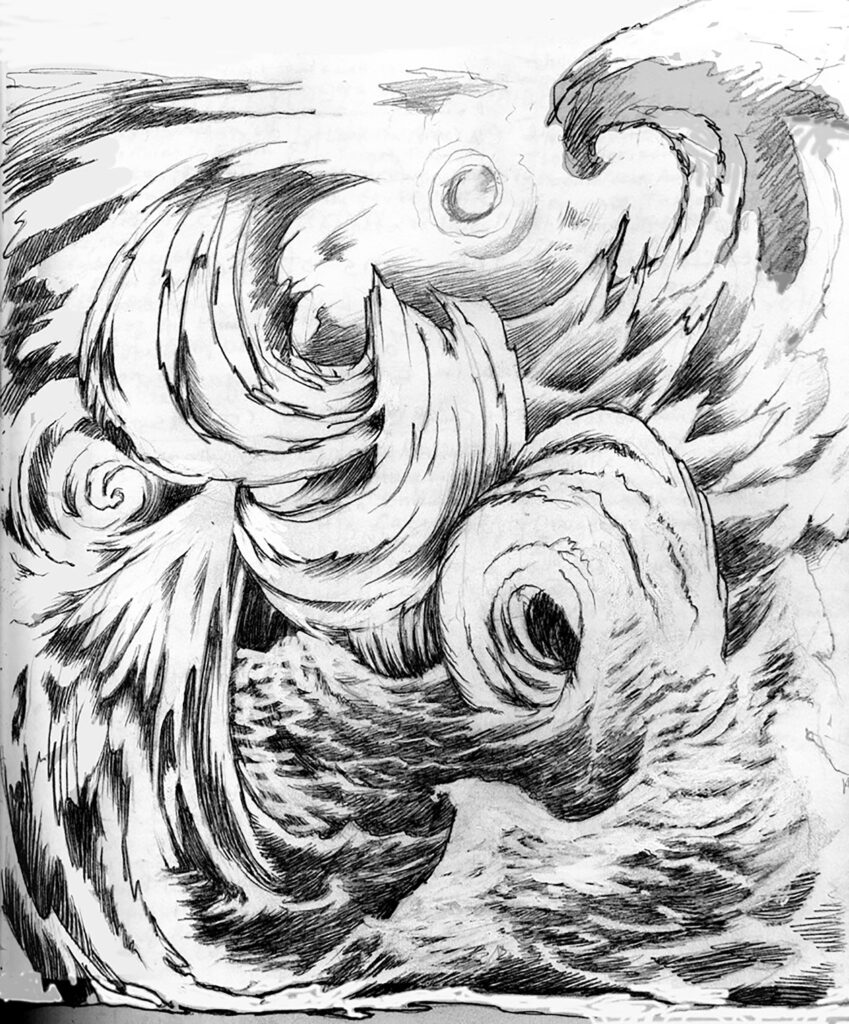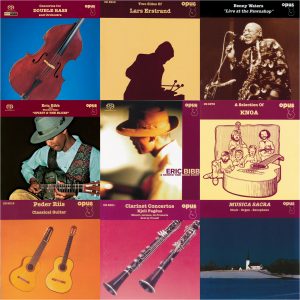In which Roger Skoff tells why he didn't buy a Ferrari…
In 1969, when a brand-new Ferrari sports car cost, depending on which model it was and how it was equipped, less than US$20,000, I almost bought a used one. It was an absolutely gorgeous 1967 bright yellow, aluminum bodied 275 GTB/4, offered by Otto Zipper sports cars in Beverly Hills at either $9000 with 11,000 miles on it or $11,000 with 9000 miles. Frankly, I don't remember; that was 56 years ago and, over time, some of the details get lost.
In any case, the car was gorgeous, I could afford it (I was Director of Business Analysis for four divisions of International Industries at the time), and, after a brief test drive, I wanted it! Until I asked a couple of questions.
Just before we signed the papers and I forked over the cash, the thought occurred to me that I might be biting off more than I could chew, so I asked the salesman, "How bad is the upkeep on one of these things?" And he answered "Oh, not bad, not bad at all."
Then, when I went on to ask him what "not bad at all "meant, he said "Oh, just figure a minor tune-up every thousand miles and a major tune-up every three thousand" When I asked how much a tune-up was, he answered "Oh, not much, not much at all," and to my next and obvious question "How much is not much at all?" he answered "Oh, figure somewhere between $1500 and $2500 for a minor tune-up, and not more than $4000 or $5000 for a major one."
That killed the deal.
At the time, I drove about 12,000 miles a year and, even figuring just his minimums ($1500 and $4000), if he was correct and I had bought that lovely Ferrari and just driven it normally, that (either $9,000 or $11,000) car would have cost me $28,000 a year, (8 minor tune-ups and 4 major tune-ups), not including either gas or insurance to drive, even if nothing at all had ever broken or required routine maintenance.
So what does that have to do with HiFi? I don't know; maybe nothing—maybe everything!
I didn't go to the Munich Show this year, but I did get reports, and I did see pictures of some of the systems and equipment that were there on display.
Some of the systems that I saw pictured were just silly (IMHO) expensive, with one of them (suitable only for use in a colossal room, despite what Harry Pearson did with a set of Infinity IRSes at Sea Cliff) priced at €9,000,000. There were also a number of others in the million to multi-million Euro range, and lots of high-priced gear at every other level.
Needless to say, the expensive systems were put together from expensive components—mostly high-priced speakers, turntables, and electronics, but other things, too, including an €85,000 un-interruptible power supply claimed also to have filtering powers, were way up there in the price range. They all made me think, again, about that yellow Ferrari and about a turn signal lever for it. (No, not the current complex kind of lever found on modern cars, with all sorts of "cruise control" and other switches and controls on them, but just a simple chromed steel lever with a fancy end). I later learned from a man who owned a 275 GTB/4 that those levers are easy to break and that, when he broke his, it took four months to special order, and cost $900 to replace.
I had similar problems getting brakes for my Maserati, but that still seems absurd to me. Even so, what does it have to do with HiFi?
It's easy: both a Ferrari and a High-End HiFi system draw their value from a number of things, and unless you buy them in full knowledge of what you're really spending your money to purchase, it's easy to spend too much to buy the wrong thing.
For example, the Ferrari was gorgeous, fast, great handling, and I certainly would have been proud to drive it and would have liked what I thought it would say about me to people who saw me driving it.
Yeah, vanity is fun.
On the other hand, I needed it for daily transportation, and certainly could have bought daily transportation—even luxurious and showy daily transportation (a new Cadillac or Mercedes every year)—for far less, at the time, than just the tune-ups on the Ferrari would have cost me.
I'm sorry to have to say it, but the very upper reaches of High-End HiFi are very much the same.
For one thing, giant speakers require giant rooms to play in (or even to house them adequately), and rooms that big can minimize HiFi's greatest tricks—imaging and soundstaging. For another, as I've written about before, expensive equipment (whether speakers, electronics, cables, or whatever) need to look expensive, which, to achieve that (think of fancy finishes, fancy meters, knobs, dials, trim and connectors) costs money. Especially when a manufacturer, a distributor, and a dealer all need to make money on it—makes the product (whatever it is) more expensive, which makes it need to be either better or more expensive-looking, and around and around and around…
And the more expensive a thing is—any thing—the less of it will be sold. (In economics, that's called "price elasticity of demand.") This means that the business's overhead costs will have to be allocated to fewer units, which will make it necessary to charge more for each unit in order to make a profit and, again, it goes around and around.
Why do your think expensive cars or HiFi gear are so expensive? Certainly, some portion of it may be the cost of better quality, higher performance, better materials, or the need for a greater amount of skilled or other labor in manufacturing them. It could also be, though, that that high labor cost is the result of the high price and its resultant fewer number of units sold. If more units were sold, it might be possible for the company to afford production machinery to replace hand labor in making the goods, and that could make them cheaper, more profitable, or both. It might even make them better: I once saw a hideously expensive Aston-Martin Lagonda sedan that was tiny production, all hand made, and of poorer apparent quality in its bodywork than the cheapest Asian import.
Another thing to consider is this: Everything is made of parts, and I know of nothing—at least in the HiFi or automotive fields—that isn't made using at least a major number of parts bought from outside suppliers.
Very few speaker companies make their own drivers, and I know of none that makes its own crossover components. Very few electronics companies, if any, make their own capacitors, resistors, tubes, transistors, transformers, or other components, and at least most buy the chassis and circuit boards from outside suppliers. No High End cable manufacturer that I know of makes its own wire to be formed into cables, and none makes either its own dielectrics or connectors.
And, interestingly, the cost of the stuff that things are made of doesn't vary anywhere near as much as the cost of the things that are made from it.
What it all comes down to is a new kind of principle that might be wise to bear in mind when shopping for practically anything, but particularly cars and HiFi: We all know the one about diminishing returns to scale: "The more you spend, the less proportional improvement each dollar of extra expenditure will buy." Well, how about changing that or adding this as a corollary?
"The more you spend, the less of each additional dollar spent will go for real improvement and the more will go for other things (appearance, prestige, brand name, or whatever else) to justify the price."
And that's why I didn't buy that Ferrari.
"Our Crowning Difficulty: A Conversation with David W. Robinson, May, 1995." Drawing by Dan Zimmerman.
Portrait of Roger Skoff by David W. Robinson, 2024. (Photograph and image processing by David W. Robinson.)



































